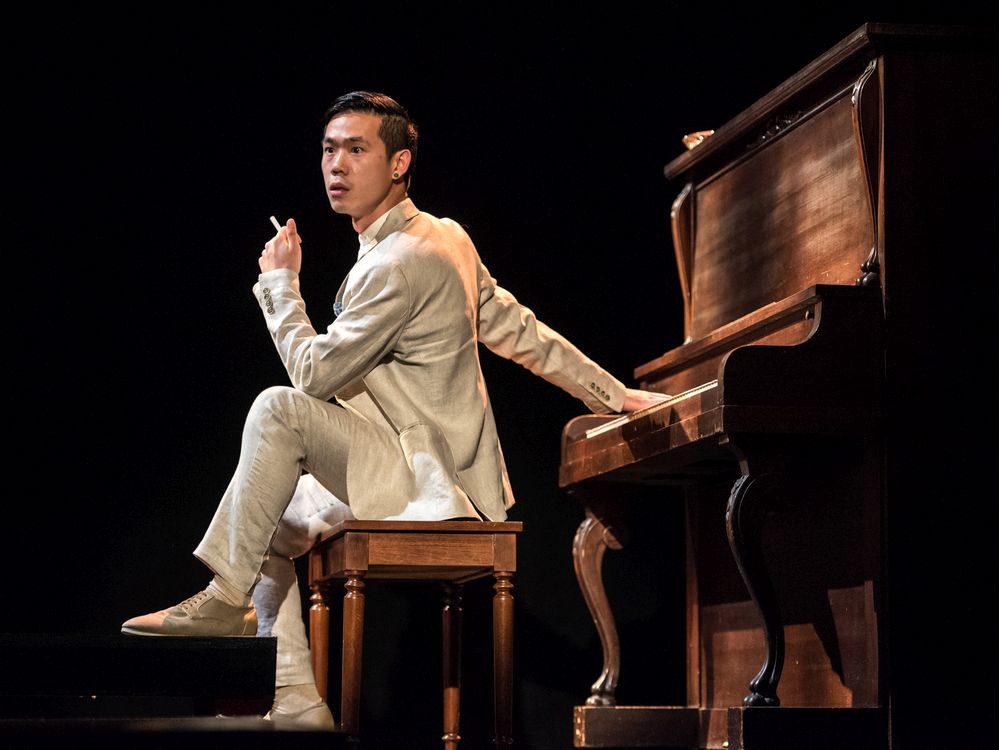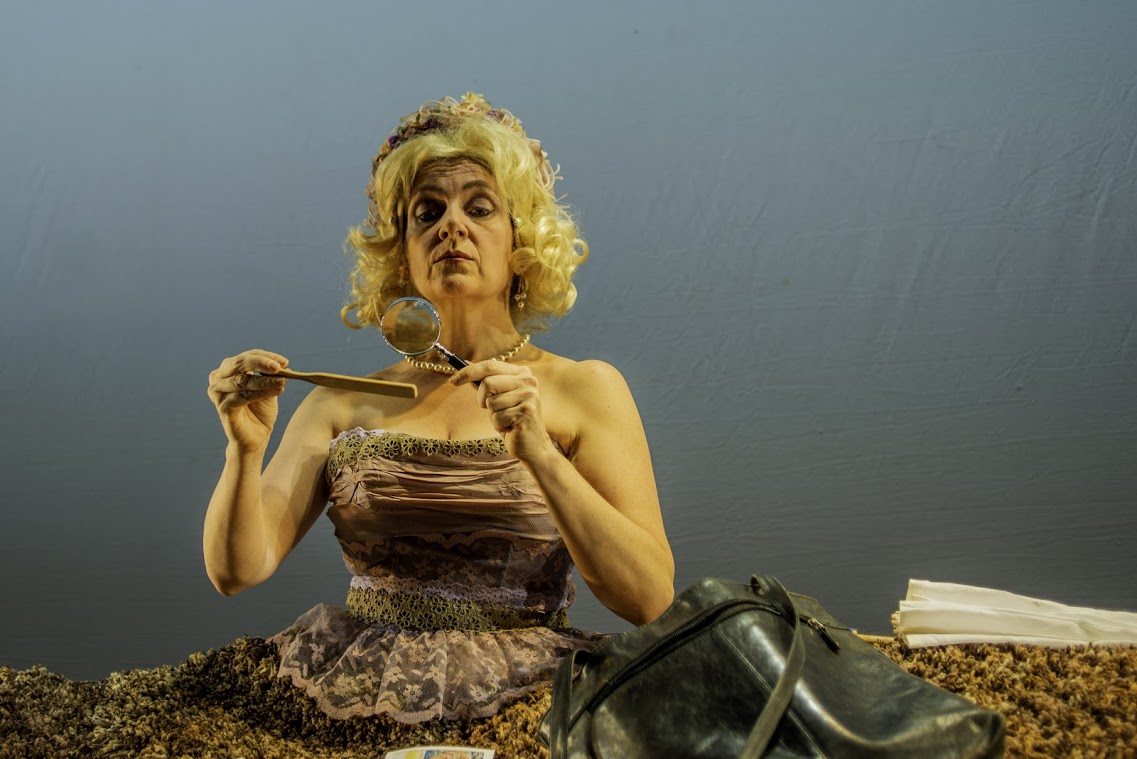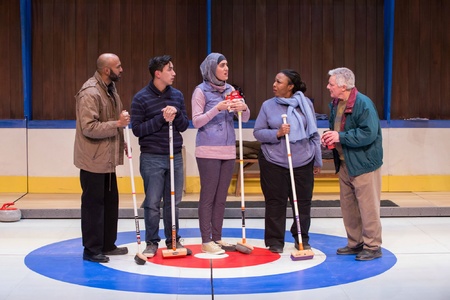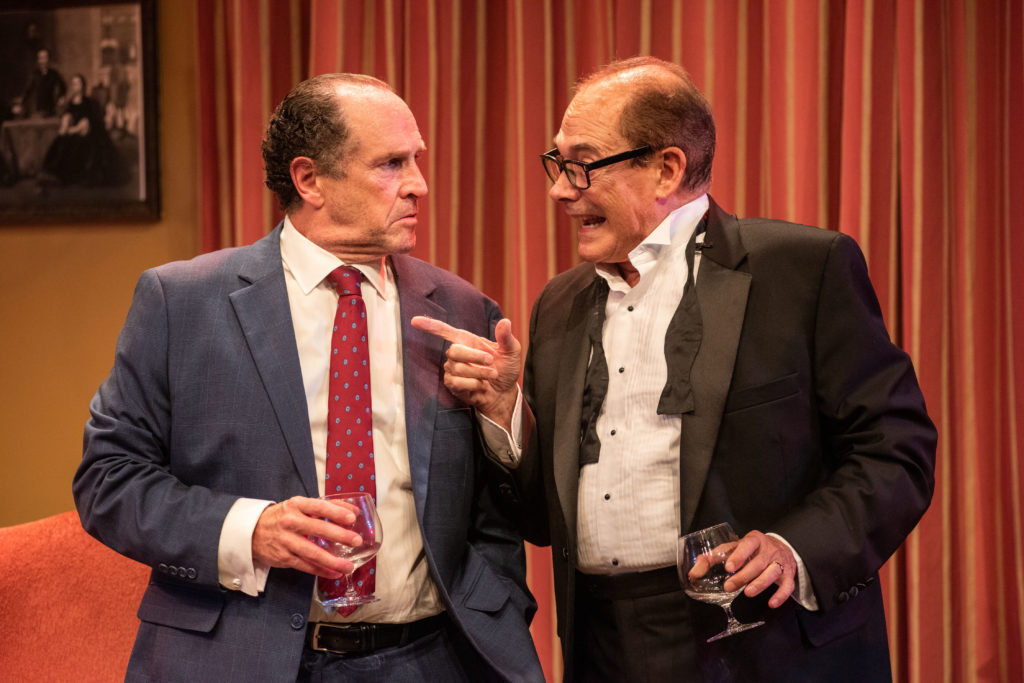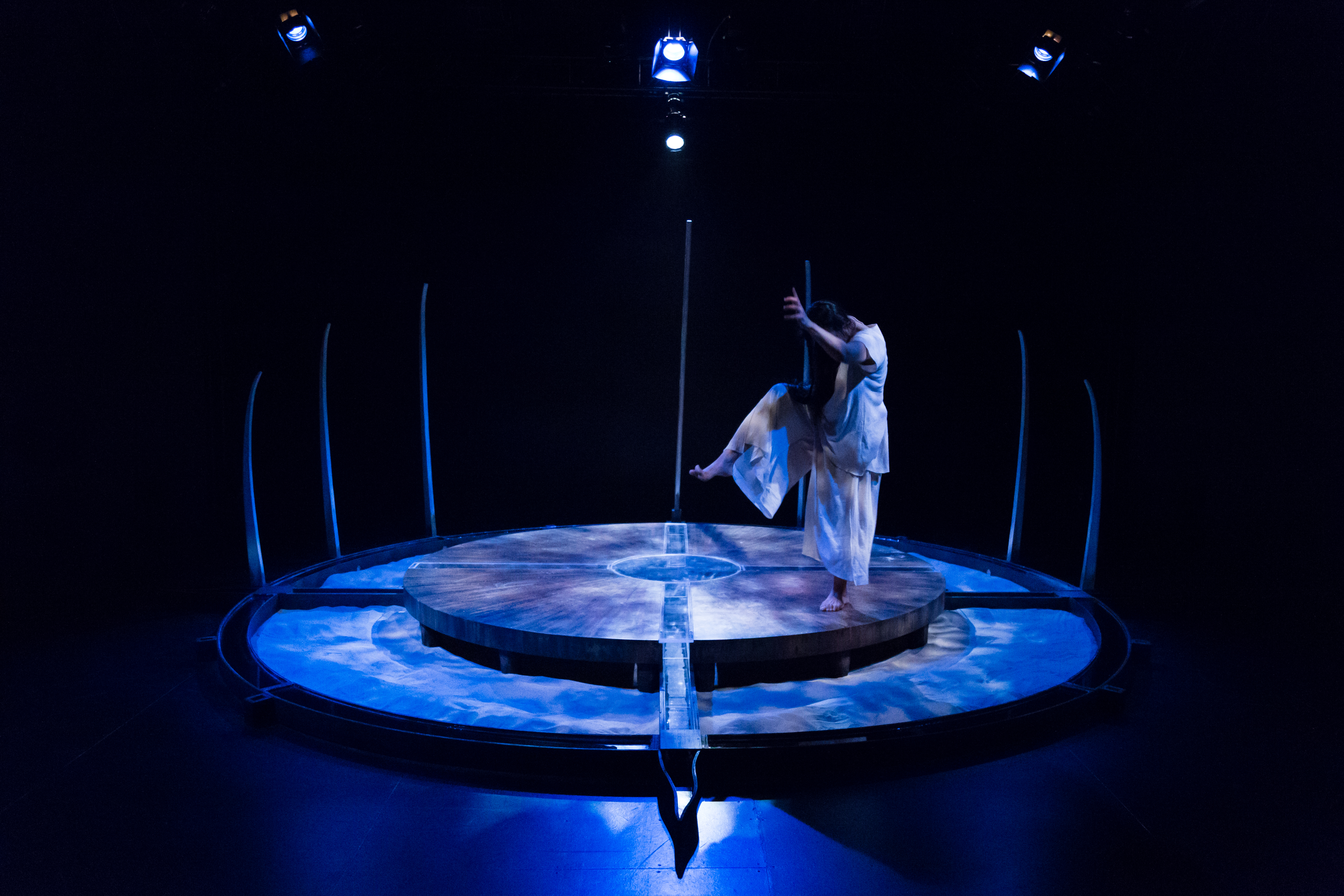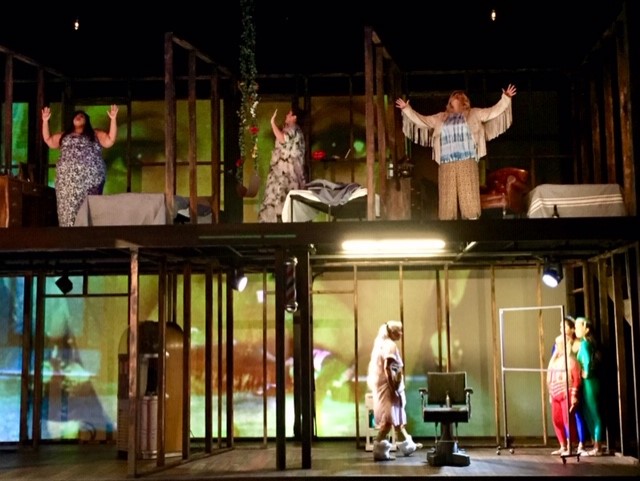A Space Divided: GCTC’s Cottagers and Indians, an evocative disavowal of white privilege
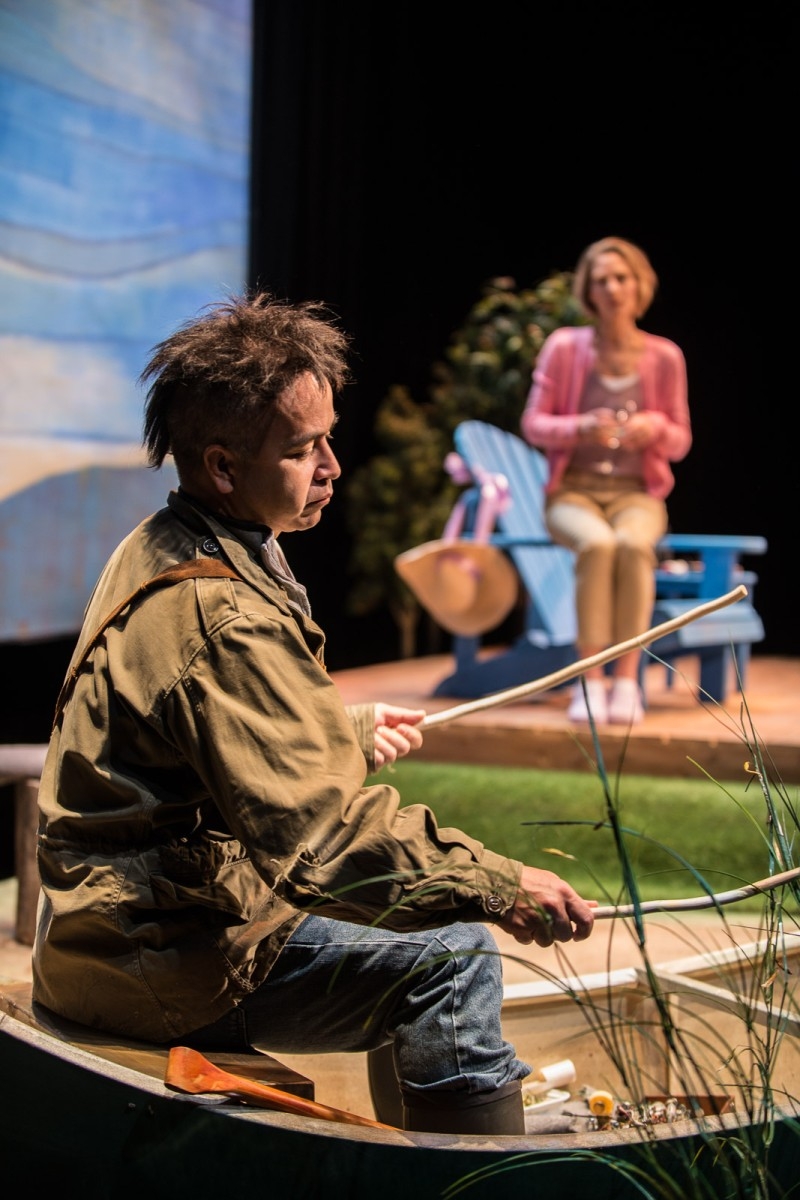
Photo Andrew Alexander, Herbie Barnes and Phillippa Domville,
The split is clear upon first glance.
He wears muddy jeans and rain boots, while she dons pristine khakis and purple Crocs. His space boasts shoots of wild rice, while hers stands testament to an outdoor grill. Between our two figures lies a shoreline, a dock, and a bright green Astroturf divide.
Drew Hayden Taylor’s Cottagers and Indians, directed by Richard Rose (Artistic Director of Tarragon Theatre), is an empathetically-sharp look into the strident echoes of Canadian colonisation. Over the course of eighty minutes, we as an audience become acquainted with the Indigenous communities fighting to take up space in the ways they deem urgent, while also listening to those whose purchased, lakefront property has become implicated in this attempt at cultural reclaim. Taylor’s artistic voice is refreshing in its generosity to its audience; it does not take sides, and does not favour one character over the other in its navigation of difficult social issues. Taylor guides his listeners without preaching to them; as such, his points speak for themselves in a way that is oh-so-powerful. …
